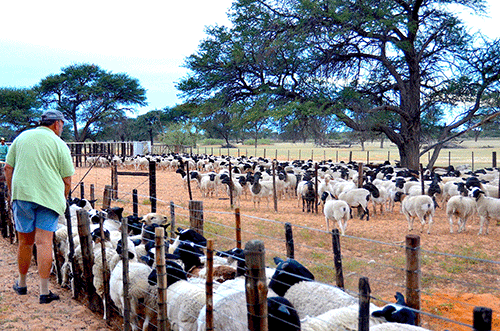The United Nations World Food Programme (WFP) is collaborating with Tololi Online, an e-commerce platform, to set up a virtual marketplace as part of efforts to improve market access and boost farmers’ income in Namibia.
About 70% of Namibia’s population depends on agriculture for income and livelihood. The virtual marketplace has so far connected over 100 smallholder farmers to local markets and will benefit several actors across the food value chain from farmers to consumers. Farmers have been able to sell fresh produce such as vegetables, potatoes, green peppers, onions, maize, cabbages, beetroot, tomatoes, and pumpkins.
“The platform will facilitate efficient offtake of produce to reduce post-harvest losses, minimise food waste, boost production, and increase profits for farmers. WFP is committed to accelerating the attainment of zero hunger in Namibia,”
said George Fedha, WFP’s country director in Namibia.
Connecting farmers to market
WFP’s collaboration with Tololi aims to link more smallholder farmers to market through the virtual platform. Through the initiative, farmers also receive agriculture extension support including training, input support, and equipment.
“We at Tololi Online, are incredibly grateful and honoured to work with WFP to create innovative solutions for the global food system, in Namibia,” said Fillemon Nangolo, Tololi’s team leader.
He said by using expertise in technology and innovation, they were able to develop a solution that addresses some of the most pressing challenges facing the Namibian food systems, thereby enhancing agribusiness. WFP has supported over 1 800 smallholder farmers countrywide with training, inputs, equipment, and infrastructure.
In partnership with regional governments, WFP has since established over 30 integrated food systems projects across the country centred at schools, communities, correctional facilities, and health facilities to upscale food production.
Major crops in Namibia include maize, millet, and sorghum.
There are mainly two types of farming in the country, namely commercial farming, and subsistence farming. The country’s commercial agricultural sector is complemented by a large informal sector characterised by subsistence farming. -www.foodformzansi.co.za



